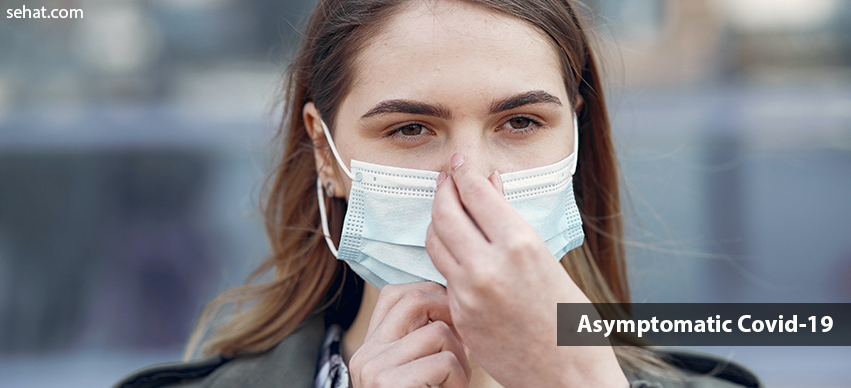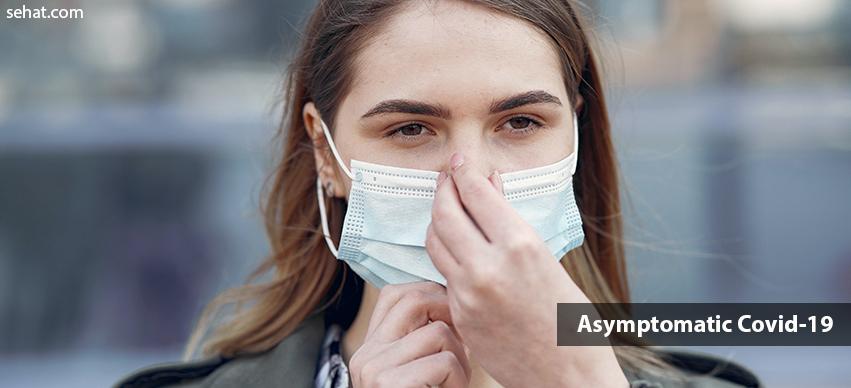Nanoparticle Therapy – An Emerging Cancer Treatment
5 Min Read


Asymptomatic coronavirus refers to the coronavirus infection where the infected patients do not show any typical symptoms that include cough, fever, or difficulty in breathing. Asymptomatic cases are also called atypical coronavirus positive cases wherein they can spread the infection without even knowing that they are infected. These patients are called "silent spreaders" of the disease.
[Also Read: Home remedies for cough]
Studies have reported that an asymptomatic Covid-19 patient has the infection, but no symptoms will develop later. Hence, an asymptomatic Covid-19 patient cannot become symptomatic.
Yes! asymptomatic COVID 19 is contagious.
It has been reported that asymptomatic Covid-19 is contagious for 3-12 days, while those with typical symptoms could spread the virus for 16-24 days.
The spread of infection from asymptomatically infected patients is observed to be much less than those who develop symptoms, and the spread from asymptomatic patients occurs only in case of close contact.
The most common modes of transmission for the Covid-19 virus include contact, droplet, airborne, and fomite.
The Covid-19 virus is often transmitted directly or through close contact with the infected patients through their saliva or respiratory secretions and droplets. When the infected person coughs, sneezes, or speaks, the respiratory droplets are expelled. These respiratory droplets containing the virus can enter the nearby susceptible person's nose, mouth, or eyes and result in infection.
Airborne transmission occurs when small respiratory droplets referred to as droplet nuclei or aerosols are suspended in the air. These aerosols remain for a long time and over long distances, unlike the larger droplets that fall on the ground. Airborne transmission usually occurs during hospital procedures that produce aerosols. Infection occurs when susceptible individuals inhale these aerosols.
Infected patients can expel respiratory secretions or droplets on objects or surfaces, contaminating them creating fomites (contaminated surfaces). Viable Covid-19 viruses can be found on these objects or surfaces from a few hours to days depending on factors such as humidity, temperature, and the surface. This kind of transmission usually occurs in healthcare facilities where COVID-19 patients are treated. The transmission occurs indirectly when the susceptible individuals touch the fomites and then touch their eyes, nose, or mouth.
Some people are asymptomatic because of their strong immunity. Once a person has been infected with the Covid-19 virus, it takes about 2-14 days for symptoms to appear, this period is known as the incubation period. The immune system of infected people plays a critical role at this point. If their immune system is strong and presents a strong immune response to the virus during the incubation period, the viral load decreases and prevents the virus from reaching the lungs to cause the infection.
It is observed that children and young, healthy people are more likely to be asymptomatic.
Testing for Covid-19 virus infection is considered diagnostic among asymptomatic individuals for the below two groups of population;
Asymptomatic individuals who know or suspect exposure to the Covid-19 virus. These individuals are mostly involved in the control of Covid-19 transmission or determining the outcome of infection. In this case, the testing is done because of the possibility of asymptomatic transmission.
Asymptomatic individuals where they do not know or suspect exposure to the Covid-19 virus. These individuals are tested for early identification of the infection and surveillance in special settings, hot spots or to characterize disease trends. Certain settings where there are more people spending time together show the rapid spread of the Covid-19 virus.
With blood samples from infected individuals showing antibodies after recovery from Covid-19, it is likely that even those without symptoms have developed antibodies. These antibodies can, therefore, be detected in a blood test of asymptomatic individuals
Asymptomatic Covid-19 patients do not show any signs or symptoms of the disease on contracting it for the entire incubation period that can last for around 14 days.
Treatment for asymptomatic Covid-19 patients is all about a few guidelines to be followed to manage the infection until they are tested negative. Below are the guidelines that aid speedy recovery and ensure the safety of their family members.
[Also Read: Importance of social distancing]
Asymptomatic Covid-19 infection appears to be common, thereby complicating the efforts to get the pandemic under control.